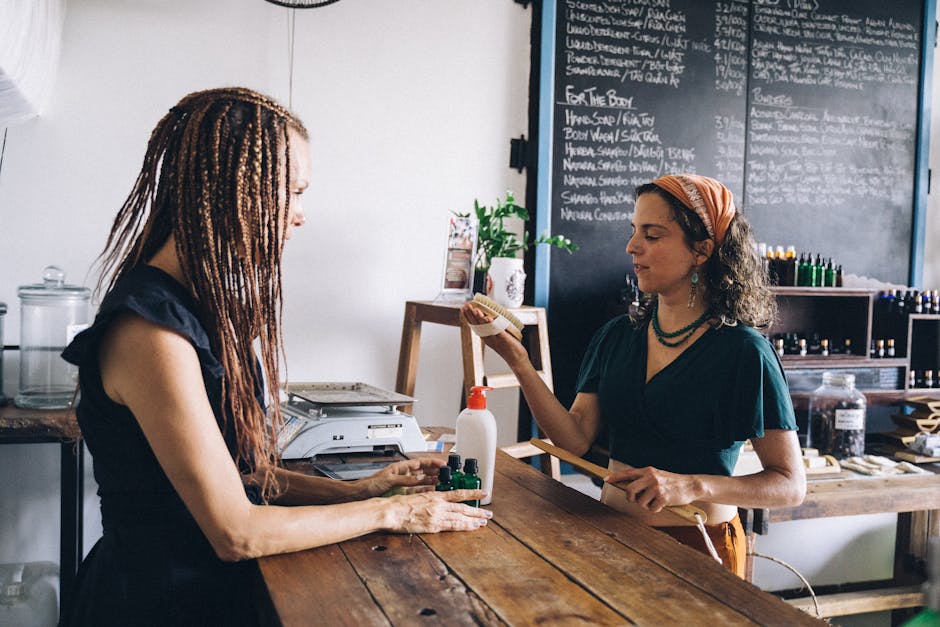Essential Aussie Slang: Speak Like a True Blue Local

Essential Aussie Slang: Speak Like a True Blue Local
G'day, mate! Ever dreamed of strolling down Bondi Beach, ordering a snag at a barbie, and chatting away with the locals like you've lived here your whole life? Well, you've come to the right place. This isn't just another list of Aussie slang; it's your personal guide to unlocking the secrets of "Strine" (that's Aussie slang, for those not yet in the know!). I'm going to share some of the most essential and commonly used slang terms, along with tips and insights on how to use them correctly, so you can confidently navigate the Australian social scene. So, grab a cuppa (that's a cup of tea), settle in, and let's dive into the wonderful world of Aussie slang!
Understanding the Aussie Accent: The Foundation of Slang

Before we even get into the lingo, let's talk about the accent. The Aussie accent is iconic – relaxed, drawling, and with a unique way of pronouncing vowels. Sometimes, understanding the accent is just as important as knowing the slang. For example, the "a" sound often becomes an "i" sound. Think "Australia" – often pronounced "Straya."
A few key characteristics of the Aussie accent include:
- Rhoticity: Aussies pronounce the "r" sound after vowels, but it's often softer than in American English.
- High Rising Terminal (HRT): This is when the intonation of a statement rises at the end, making it sound like a question. It's common, so don't be surprised if it sounds like everyone is constantly asking something!
- Vowel Sounds: As mentioned earlier, vowels are often modified. "Day" might sound like "die," and "mate" like "mite."
Don't be afraid to practice! Watch Aussie movies and TV shows (think "Kath & Kim" or "Neighbours") and try mimicking the accent. The more you listen, the easier it will become to understand and eventually use the slang naturally.
Essential Aussie Slang Words and Phrases

Alright, now for the good stuff! Here's a curated list of essential Aussie slang, broken down into categories to make it easier to digest. I've included examples to show you how to use them in real-life conversations.
Greetings and General Terms
These are the words you'll use most often, so start here!
- G'day: Short for "Good day," this is your standard Aussie greeting. Use it like "hello."
Example: "G'day, mate! How's it going?"
- Mate: The ultimate term of endearment. Use it for friends, strangers, anyone!
Example: "Thanks, mate, I appreciate it."
- How's it going?: A common way to ask "How are you?"
Example: "G'day, mate! How's it going?"
- Good on ya: Means "Good for you," "Well done," or "That's great." It's a versatile phrase.
Example: "You got the job? Good on ya!"
- No worries: Means "No problem," "You're welcome," or "Don't worry about it."
Example: "Thanks for helping me." - "No worries!"
- Cheers: Used to say "Thank you," "Goodbye," or when toasting drinks.
Example: "Cheers for the lift!" (Thank you for the ride).
- Ta: Another way of saying "Thank you."
Example: "Ta for the coffee!"
- Righto: Means "Okay," "Alright," or "Agreed."
Example: "Righto, let's go!"
- Reckon: To think or believe.
Example: "I reckon it's going to rain today."
Food and Drink
Australians love their food and drink, and they have special words for them, too!
- Barbie: Short for "barbecue."
Example: "Let's have a barbie this weekend."
- Snag: A sausage. Usually enjoyed at a barbie.
Example: "I'll have a snag on a slice of bread, please."
- Brekkie: Breakfast.
Example: "I'm starving, let's grab some brekkie."
- Arvo: Afternoon.
Example: "See you this arvo!"
- Cuppa: A cup of tea or coffee.
Example: "Fancy a cuppa?"
- Servo: A petrol (gas) station. Often sells food and drinks.
Example: "Let's stop at the servo for a drink."
- Choccy biccy: Chocolate biscuit.
Example: "I'm craving a choccy biccy with my tea."
- Sanger: A sandwich.
Example: "I'll have a Vegemite sanger for lunch."
People and Places
Knowing these will help you navigate social situations and understand who people are talking about.
- Aussie: An Australian person.
Example: "He's a true blue Aussie."
- Tradie: A tradesperson, like a plumber, electrician, or carpenter.
Example: "We need to call a tradie to fix the sink."
- Pom/Pommy: A British person. (Use with caution, it can be considered slightly offensive in some contexts).
Example: "The Poms are visiting this summer."
- Sheila: A woman. (Again, use with caution as it can be considered outdated or sexist).
Example: "That sheila over there is hilarious."
- Bloke: A man.
Example: "He's a good bloke."
- Goon: Cheap cask wine.
Example: "Let's grab a goon bag for the beach."
- Bottle-O: A liquor store.
Example: "I'm heading to the bottle-o, want anything?"
- Bush: The Australian outback or countryside.
Example: "Let's go camping in the bush."
- Outback: The remote, arid interior of Australia.
Example: "The outback is a vast and beautiful place."
- Dunny: Toilet.
Example: "Where's the dunny?"
- Roo: Kangaroo.
Example: "Watch out for roos on the road."
- Servo: A petrol station.
Example: "I need to stop at the servo for petrol."
Descriptive Words and Phrases
Add some colour to your conversations with these descriptive terms.
- Fair dinkum: Means "genuine," "true," or "honest." Can also be used as a question: "Are you serious?"
Example: "That's fair dinkum amazing!" "Fair dinkum? You won the lottery?"
- Ripper: Excellent or fantastic.
Example: "That's a ripper idea!"
- Strewth: An expression of surprise or disbelief.
Example: "Strewth! That's incredible!"
- Crikey: Another expression of surprise, similar to "Wow!"
Example: "Crikey, that's a big spider!"
- Dodgy: Suspicious, unreliable, or of poor quality.
Example: "That car looks a bit dodgy."
- Sickie: A day off work due to illness (real or imagined!).
Example: "I'm taking a sickie today."
- Cactus: Broken, not working, or in trouble.
Example: "My phone is cactus."
- Rooted: Exhausted or broken. Similar to "cactus."
Example: "I'm absolutely rooted after that hike."
- Bonza: Great, excellent, fantastic.
Example: "That's a bonza idea!"
Common Aussie Phrases and Sayings
These phrases will help you understand the nuances of Aussie conversation.
- "No worries, she'll be right": Means "Don't worry, everything will be okay."
Example: "I accidentally spilled your drink." - "No worries, she'll be right."
- "Throw a shrimp on the barbie": A bit of a cliché, but it means "Put some prawns on the barbecue." (Aussies are more likely to say "prawns" than "shrimp.")
Example: "Come over, we'll throw some prawns on the barbie."
- "Hooroo": Goodbye.
Example: "Righto, hooroo!"
- "See ya later, alligator": A playful way to say goodbye.
Example: "See ya later, alligator!"
- "Too right": Means "Absolutely," "You're right," or "I agree."
Example: "It's a beautiful day, isn't it?" - "Too right!"
- "Have a crack": To give something a try.
Example: "Why don't you have a crack at fixing it?"
- "Taking the mickey": Teasing or making fun of someone.
Example: "Are you taking the mickey out of me?"
- "Rack off": Go away, leave me alone. (Can be considered rude).
Example: "Rack off, I'm busy."
- "Chuck a U-ey": To make a U-turn while driving.
Example: "I missed the turn, I'll chuck a U-ey."
Tips for Using Aussie Slang Like a Pro

Knowing the words is only half the battle. Here are some tips to help you use Aussie slang naturally and effectively:
- Listen and Observe: The best way to learn slang is to listen to how native speakers use it in context. Pay attention to the tone of voice and the situation.
- Start Slowly: Don't try to incorporate every slang word you learn at once. Start with a few common phrases like "G'day, mate" and "No worries."
- Don't Force It: If slang doesn't come naturally to you, don't force it. It's better to speak clearly and be understood than to sound awkward trying to use slang you're not comfortable with.
- Be Aware of Context: Some slang is more appropriate in casual settings than in formal ones. Avoid using very informal slang in business meetings or when speaking to someone you don't know well.
- Be Mindful of Sensitivity: As mentioned earlier, some slang terms can be considered offensive or outdated. Be aware of the potential impact of your words and avoid using terms that might be hurtful or disrespectful. "Sheila" and "Pom" are prime examples to be cautious with.
- Practice Makes Perfect: The more you use Aussie slang, the more natural it will become. Try using it with friends or family, or even just practicing in front of a mirror.
- Don't Be Afraid to Ask: If you hear a slang term you don't understand, don't be afraid to ask what it means. Most Aussies are happy to explain their lingo to visitors.
- Embrace the Humour: Aussie slang is often humorous and playful. Don't be afraid to use it with a smile and a sense of fun.
Common Mistakes to Avoid

Even with the best intentions, it's easy to make mistakes when using slang. Here are some common pitfalls to watch out for:
- Overusing Slang: Using too much slang can make you sound like you're trying too hard. A little goes a long way.
- Using Slang Incorrectly: Make sure you understand the meaning and context of a slang term before using it. Using it incorrectly can be confusing or even offensive.
- Mispronouncing Slang: Pay attention to the pronunciation of slang terms. Mispronouncing them can make you sound like you don't know what you're talking about.
- Using Clichés: While some clichés are fun, overusing them can make you sound unoriginal. Try to incorporate some more modern and less common slang into your vocabulary. "Throw another shrimp on the barbie" is a prime example!
- Being Insincere: Slang should come naturally and reflect your personality. If you're not genuine, people will be able to tell.
Why Learn Aussie Slang?

Learning Aussie slang isn't just about sounding cool (although it definitely helps!). It's about connecting with Australian culture and people on a deeper level. When you understand the local lingo, you're better able to:
- Understand Conversations: You'll be able to follow conversations more easily and avoid misunderstandings.
- Build Relationships: Using slang can help you build rapport with Aussies and show that you're making an effort to connect with their culture.
- Experience Australia More Authentically: Learning slang can give you a deeper understanding of Australian humour, values, and way of life.
- Navigate Social Situations: Knowing the local lingo can help you navigate social situations more confidently and avoid embarrassing faux pas.
- Have More Fun: Let's face it, learning slang is fun! It's a great way to expand your vocabulary and add some colour to your conversations.
Beyond the Basics: Exploring Regional Variations

Just like any country, Australia has regional variations in its slang. What's common in Sydney might be different from what's used in Melbourne or Brisbane. While this guide covers the most common and widely understood slang, it's worth exploring regional variations if you're planning to spend time in a specific part of Australia.
For example, in Queensland, you might hear "stubbies" referring to short shorts, while in other states, it might refer to beer bottles. Keeping an ear out for these regional differences will further enhance your ability to connect with locals and truly understand the nuances of Aussie culture.
Embrace the Journey and Have a Laugh!

Learning Aussie slang is a journey, not a destination. Don't be afraid to make mistakes, ask questions, and have a laugh along the way. The most important thing is to be respectful, genuine, and open to learning. So, go out there, give it a crack, and embrace the wonderful world of Aussie slang. And remember, "No worries, she'll be right!" You'll be speaking like a true blue Aussie in no time. Cheers, mate!
Post a Comment